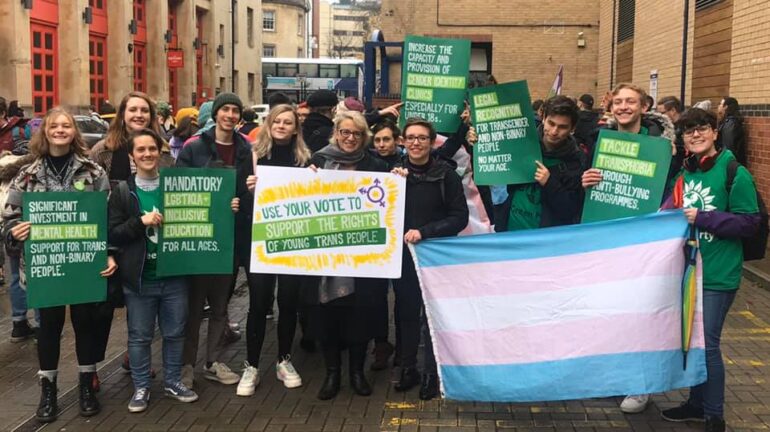Where is gender in our economic justice?
I recently went to a conference looking at the future of Europe. In one section, a group of us were talking about the kind of economy we’d like to see, and how to get there. It was all the usual good stuff you’d expect from people on the left – a range of views from social democrats to democratic socialists, bumping along together nicely.
But one thing did surprise me a little. When I raised the fact that most of our economy is built on the unpaid or underpaid caring labour of women, they all smiled nicely and moved on. No one disagreed. We just didn’t – me included – seem to have much to say about the topic.
And that’s what excites me most about the Feminist Summer School in Bristol this weekend. All too often, those of us who campaign for economic justice are quick to talk about those bits of work which are rewarded with pay, but forget that a huge amount of the work done in the UK – a huge portion of our economy – is unpaid, caring work. And when we do talk about those who are paid to do caring or domestic work, we rarely seem to ask why it is that they are almost all women. All too often, when discussing economic policy, we fail to remember that decisions have hugely different impacts depending on your gender.
I’ll give one example – highlighted recently by Scottish journalist Lessley Riddoch. We all know that spending cuts hit women hard. What we haven’t talked about is the gendered implcations of those investments which are being made. When the government recently announced that they would invest a bit in some infrastructure, what they meant was big engineering projects. They mean they are going to pay people to build big things – projects creating jobs more than 90% of which are done by men.
Jobs for men are crucial. We must defend them. But we must also ask why there is no equivilent investment in the sorts of jobs more often done by women? I’ll put it another way.
When we see a big physical thing, we see it as an investment, as infrastructure. That train allows people to travel faster to work meetings, saving the economy money. Or whatever. In our patriarchal world those sorts of things are mostly built by men. When we build a society which raises children who are less likely to commit crime, or when we care for old people day to day and so save huge potential medical bills, or when we educate young people, there is a huge financial pay off – at least as much as the businessman (and yes, it usually is a man) getting to his (usually) meeting faster. Such social infrastructure is as important to our economy as physical infrastructure. But when the Treasury decides to pay for lumps of stuff, they see it as an investment. When they pay for a better functioning society, they see it as a cost. When they pay for the kinds of jobs done by men, they see it as an investment. When they pay for the kinds of job done by women, they see it as a cost.
Now, there are of course many layers to this problem. I like looking after small children more than many women I know do. Many men do. Yet vanishingly few men work in nursery schools. There is no good reason why women do more caring jobs and men do more construction jobs. I’d like to end that split. And we can’t pretend that all women are the same – black women and immigrant women are much more likely to depend on jobs in caring professions than white middle class women. Gender is one of the many ways that people are oppressed, but no one thinks it is the only one.
But all of these complexities mean that we need to talk much more about these questions. And the Feminist Summer School, which takes place in Bristol this weekend, is the place to do it. You can book your ticket here.



Leave a Reply